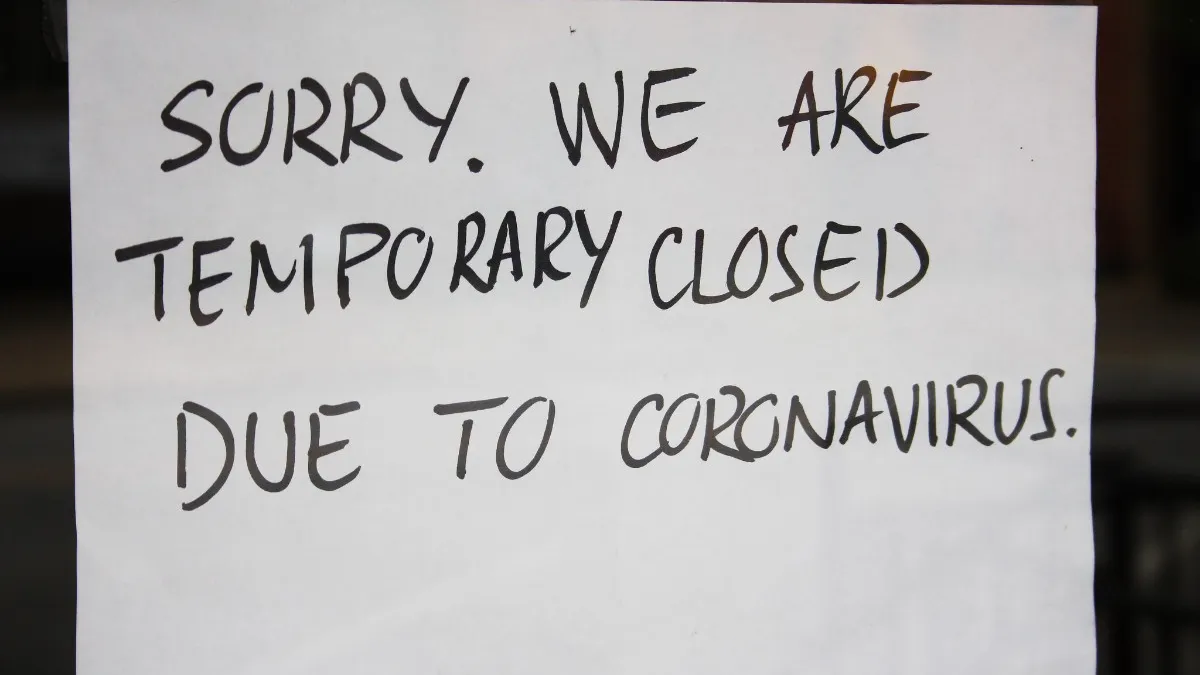Dive Brief:
- A new report from the NYC Hospitality Alliance finds that 83% of businesses could not pay full rent in July, while 37% reported paying no rent at all.
- Seventy-one percent of landlords said they would not waive portions of rent because of COVID-19, while 61% said they would not defer rent, and 90% would not formally renegotiate leases.
- In a statement, NYC Hospitality Alliance executive director Andrew Rigie said these businesses “need solutions from government leaders at the city, state and federal level.” Among the solutions he proposes are the extension of the eviction moratorium, the extension of the suspension of personal liability guarantees in leases, a pause on commercial rent taxes, support for landlords and the infusion of cash for small businesses.
Dive Insight:
The potential for a novel coronavirus-induced rent crisis became evident early on in the outbreak, when The Cheesecake Factory CEO David Overton sent a letter to all of the company's landlords informing them that the company would not be able to make rent payments for its nearly 300 restaurants on April 1.
Four months later and this crisis has significantly deepened as the virus relentlessly lingers, causing restaurants in numerous markets to re-close or reduce capacity for a second time. New York City serves as a pacesetter for the U.S. restaurant industry, with the most restaurants, coffee shops and specialty-food stores per capita prior to the pandemic. This means the city is likely to be disproportionately affected from mass restaurant closures, so far estimated to be around 17% nationally.
July’s rent report, combined with New York's unemployment numbers, could exacerbate this crisis sooner than later in the city. In March and April, New York City emerged as the first epicenter of the pandemic in the U.S. and is one of the city’s hit hardest. From January to June 2020, the unemployment rate in New York City fell by 469%, according to WalletHub, and as of June, stands around 20.4%.
As such, Peter Braus, managing principal of real estate firm, Lee & Associates, told The Counter that the city’s restaurants are never going to make up the business they’ve lost and expecting them to repay rent losses is “unrealistic.”
Perhaps compounding the issue is the lack of aid available to restaurants. Insurance companies aren’t exactly rushing out to cover COVID losses under business interruption claims, and the federal government’s funding programs have largely covered payroll protection, with just 25% of funding focused on fixed costs like rent. More than 100 CEOs of large businesses, including Starbucks, responded to the latter issue this week by sending a letter to Congress asking for more federal aid.
If there is any positive takeaway from the rent crisis, it’s that real estate prices could drop substantially, perhaps offering up opportunities for new or large, well-funded concepts. There have been some glimpses of this already happening for both mom and pops and chains like Chipotle.
Further, The Counter reports that the COVID-19 crisis has shifted the power balance for lease negotiations from landlords to restaurant owners. The story notes that restaurants typically sign leases that are 6% to 10% of their gross revenue but are now offering other solutions like percentage leases, in which tenants pay a percent of gross revenue or a lower base rate plus a percentage. Some restaurants have gotten creative with carryout and outdoor dining to pay something against those percentage leases, but that solution will also likely become more challenged as fall approaches and outside dining options disappear in the city.











